#tragicomic ghost
Text

Sketch
#shan he ling#tian ya ke#word of honor#faraway wanderers#zhou zishu#zhang chengling#tragicomic ghost#Lou fumeng#beauty ghost#liu qianqiao#gu xiang#du pusa
271 notes
·
View notes
Text


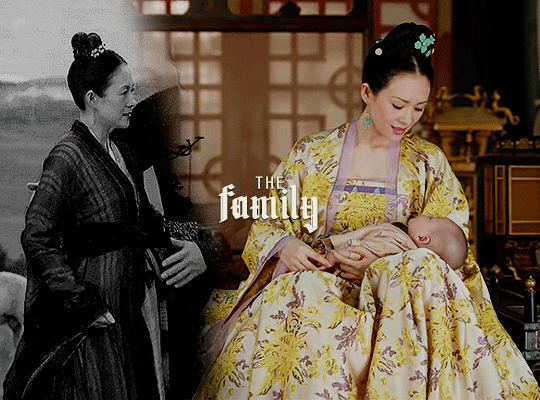
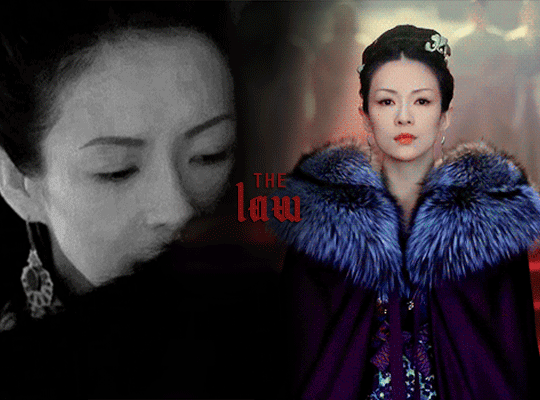
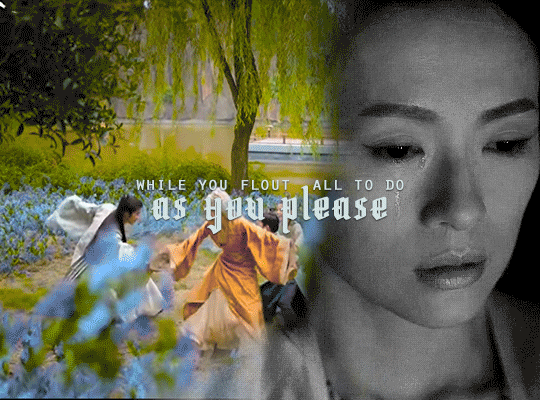



And now you take my son's eye and to even that you feel entitled!
LET'S RECAST THAT ⤵
teenage Rhaenyra ‒ Zhang Xueying
adult Rhaenyra ‒ Chen Zihan
teenage & adult Alicent ‒ Zhang Ziyi
#let's recast that#hotd poc#house of the dragon#monarch industry#the rebel princess#tragicomic ghost#luo fumeng#chen zi han#zhang ziyi#zhang zi yi#wang xuan#I have made and colored and stared at gifs of zhang for several days#I am so over making this even if I'm not completely satisfied...#but I'm happy with it#princess silver#Zhang Xueying#Rong Le#memoirs of a geisha#Chen Zihan#my stuff#gotpoc#got poc#westerosiladies
232 notes
·
View notes
Photo
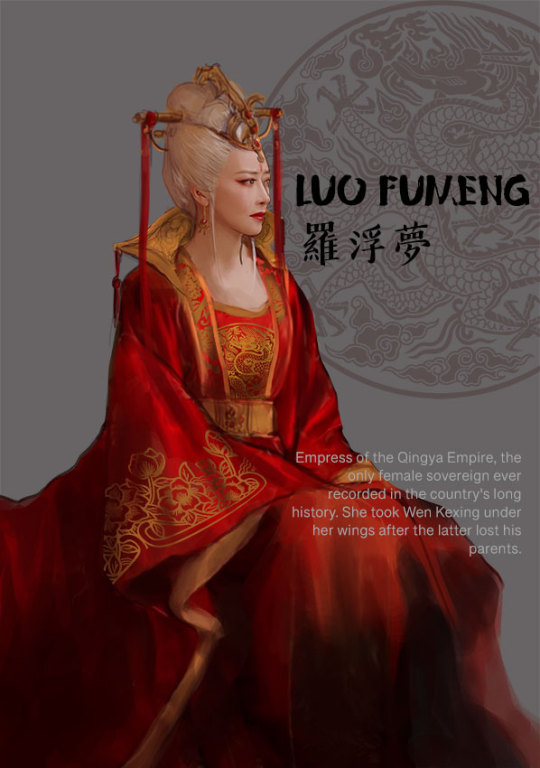



FALL OF THE CRIMSON FLOWER: CHARACTERS INTRODUCTION
---
Luo Fumeng
The presiding Empress of the Qingya Empire. Due to her ailing health, her hair turned white despite her still not being advanced in age.
She was very much loved by her people.
To this day, the enigmatic Empress had yet to be betrothed.
Rumors said that she harbored feelings for one of the high officials in court, but the late Emperor was strongly against it. Thus, she chose to remain unwed.
---
Helian Yi
Despite not being being the eldest prince, Helian Yi had been highly favored by the Jin Emperor from a young age due to his brilliance, who made him the Crown Prince despite others' oppositions.
He held great influence over the Emperor's judgment. The Jin Empire's General, Zhou Zishu, was his most trusted aide. Though unfounded, there had been unpleasant hearsays surrounding their ruler-subject relationship.
---
Zhou Zishu
The Jin Empire's highest-ranking General who leads the whole Imperial Battalion.
Steadfast and extremely loyal, he was willing to sacrifice everything—even his life—for the glory of the Jin Empire.
His father used to be a high-ranking General in the army who was sentenced to exile due to a sudden accusation of treason. However, thanks to the Crown Prince's benevolence, Zhou Zishu was saved from the punishment.
He was subsequently sent into the palace to be the Crown Prince's study partner and grew up alongside him.
Ever since then, Helian Yi became Zhou Zishu's greatest benefactor.
---
Wen Kexing
Famed General of the Qingya Empire's Imperial Army. His merciless onslaughts on the battlefield earned him the nickname "Demon General" from allies and foes alike.
Despite not being born into a military family, his impeccable achievements and meritorious deeds sent his career soaring until he became the highest-ranking General at a much younger age compared to his predecessors.
He blamed the Jin Empire for the death of his parents and despised them to the core.
Strangely enough, he held complicated sentiments toward Zhou Zishu, the General of his enemies, who was supposed to be his archrival.
---------
"Fall of the Crimson Flower" is a " A “Word of Honor - WenZhou War Lords AU” collaboration project between @brilcrist and @akatsuki-shin
You can also follow our updates here on Twitter.
#Word of Honor#Shan He Ling#SHL#Zhou Zishu#Wen Kexing#WenZhou#WoH#Luo Fumeng#Tragicomic Ghost#Helian Yi#Jin Wang#Prince Jin#WenZhou War Lords AU#Fan Fiction
27 notes
·
View notes
Link
originally written for the Wind, Waves, Wishes Danmei Mermaid zine!
liu qianqiao/luo fumeng (word of honor/shl)
2.5k words, rated t
selkie!lqq x sea monster!lfm
Liu Qianqiao stood by the sea with someone else’s salt tears on her face and her sealskin in her hands. The sun had just set behind her, leaving the sky above the waves the washed out blue-purple of a healing bruise, and the wind that pulled her hair loose seemed to pull her closer.
Welcome home, said the sea in the gentle murmur of the surf. Welcome home, said the gulls crying overhead. Welcome home, said her own heartbeat, frantic with excitement, with anticipation of the rest of her life now that she was finally, finally free.
#realized i hadn't crossposted on here yet#word of honor#liu qianqiao x luo fumeng#luo fumeng x liu qianqiao#liu qianqiao#luo fumeng#beauty ghost#tragicomic ghost#oh now i remember why i hate posting fic on tumblr. it's bc trying to figure out all the tags to use so that ppl see something is exhausting#anyway. read this i'm proud of it and it flopped on twitter#dreaming.txt#my writing
16 notes
·
View notes
Text
An addition to my Ghost Valley Master's Wife AU: An unexpected face approaches Xisanggui's Manor.
Unknown to his superiors, Han Ying has entered the Jianghu on the trail of certain rumours that his Lord survived his fall from the cliff and was carried by the river into the Ghost Valley.
Luo Fumeng is immediately intrigued by this upright young master, whose faith in his Lord is so resolute that he would follow the man into the underworld.
Unfortunately, knowing how possessive the Valley Master is over his new plaything, Luo Fumeng tells Han Ying that the only thing they found was a corpse.
She offers to let the young man stay for the night in her manor and is not surprised to find the so-called Zhou Xu watching the young man from behind a screen as he extinguishes the candles in his room one by one. Zhou Xu's face is obscured by a blue veil, but Luo Fumeng is long acquainted with the face of loss.
"He is devoted," Xisanggui says, attentive to how her words wash over the enigmatic man. "As are you."
"He will want to see the body," Zhou Xu says, not looking away from the young man.
"A'Xing will not allow it."
"I don't care," Zhou Xu says. "Ying'er deserves that closure."
"Zhou Xu," Xisanggui says, stepping closer. "I am not a Ghost that values the brotherhood of men over the union of a lover."
"Lao Wen and I are not wed," Zhou Xu says stiffly, not taking his eyes from the young man who is now loosening the well-worn bracers on his arms. "I have never taken a lover, man or woman."
Luo Fumeng watches him for a long, silent moment, and feels her heart ache strangely in her chest. She has never understood the devotion to service over oneself, driven so wholly by her heart's desire. But she knows intimately the pain of a bleeding heart, and how it can stain a marriage.
"Qianqiao," she calls over her shoulder. "Arrange a prier, so that our guests may mourn their parting."
#nikkiwrites#wenzhou au#wen kexing#zhou zishu#han ying#luo fumeng#liu qianqiao#xisang gui#tragicomic ghost#wenzhou#hanzhou#hanwenzhou#ghost valley au
18 notes
·
View notes
Text
Word of honor so far:
Ghosts: you have a plan right boss?
Wen kexing: oh yeah! I’ll tell it to u after i’m done following this totally not a beggar dude!
Later:
Ghosts: ur back! Do u have a plan?
Wen kexing (holding back tears): A-xu broke up with me! So i’m gonna burn it all down!
Ghosts: …but u have a plan right?
Wen kexing: sure!
Later later:
Ghosts: the five sect alliance literally burned down one of out bases and took the tragicomic ghost prisoner! What do we do???
Wen kexing (drunk out of his mind): A-Xu is dying!!!! 😭😭😭
Ghosts: really??? Really? See this is why the impertinence ghost is plotting against you.
#word of honor#wen kexing#i’m not done yet so no spoilers#tragicomic ghost#impertinence ghost#woh#he’s gonna get betrayed and i just know it#and i can’t even really blame them
3 notes
·
View notes
Text


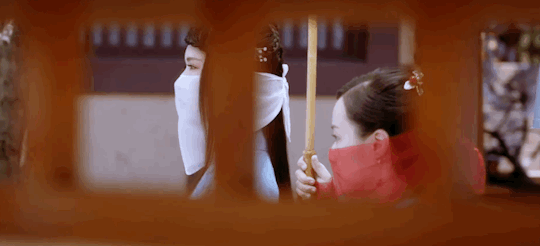
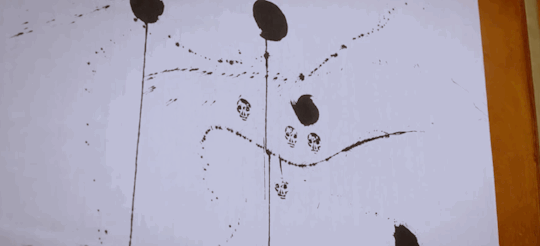



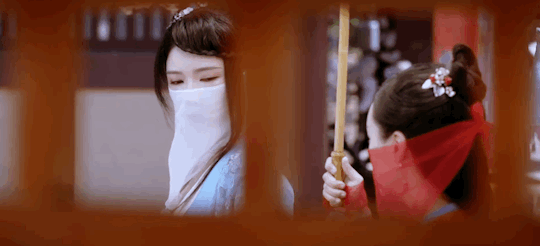



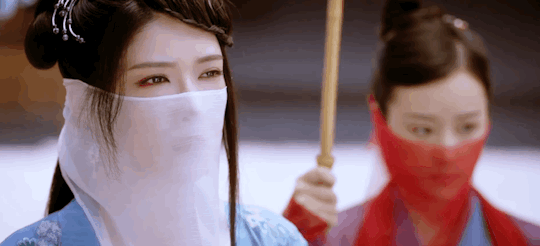


《山河令》 WORD OF HONOR (2021) | Episode 10
Two mournfully shining lamps
weep their way through the swirling lake.
I don't know the pilot who's slowly
driving around with that load of sorrow.
But I sense he sits bent over the wheel
and breathes uneasily onto the windshield.
—Tommy Olofsson, "Mist" from Elemental Poems, transl. by Jean Pearsson, 1991, White Pine Press
#very self indulgent#my gif#woh gifset#asiandramasource#gifset#word of honor#asiandramanet#dailyasiandramas#wohedit#shan he ling#luo fumeng#liu qianqiao#wen kexing#master of ghosts#word of honor episode 10#ten devils of ghost valley#women of ghost valley#department of the unfaithful#cdrama#cdramanet#山河令#beauty ghost#tragicomic ghost#cdramagifs#cdramaedit#wohdaily
81 notes
·
View notes
Text

"Who wants to be nice?
Who wants to be tame?
All of your good guys
They all seem the same"
#word of honor#shl#woh#cdrama#fanart#Yeas this is a tribute the Tragicomic Ghost on international woman's day
261 notes
·
View notes
Text
"Wen Kexing, why are you going crazy again?"
Ah, you see, he is going through a very bad break up right now and what's better in times like this than a little bit of senseless murder? As a pick me up, if you will.
#I swear the whole scenes of them drinking their heartbreak away killed me#those men are SO dramatic#Wen Kexing a lot more outwardly but boy Ah Xu is no better#Tragicomic Ghost sounds like someone who had to deal with that shit far too often#Word of Honor#words
6 notes
·
View notes
Note
What are some of Tragicomic Ghost's favorite things? Why?
Tragicomic has a few things she's particularly fond of. Not in the material sense. Personal possessions are hard to protect in Ghost Valley, even in Luo Mansion. But there are non material things she's deeply fond of.
The first, of course, being watching over her girls. She's protective of them. Their safety means everything to her. Watching a frightened woman go from warding off the others with fanged, biting remarks and a swift kick or punch to laughing and sharing meals with Luo Mansion friends warms Tragicomic Ghost's heart.
The second is her family. Well, difficult to call them that without bringing unneeded attention to them (again very dangerous in Ghost Valley). Wen Kexing (her A-Xing, her boy), Gu Xiang, Liu Qian Qiao... her bonds with each of them are strong. If she could die a thousand deaths to guarantee those three would live happy lives with the ones they love, she would in a heartbeat.
The third is revenge.
Served to any unfaithful man on a ghostly platter. No mercy, only a smile in return for their pleas. Spirits and bodies broken, innocent women avenged.
Violent, terrifying revenge.
#(SORRY THIS TOOK SO LONG)#headcanons; tragicomic ghost#(fuck I need to make more TAGS)#dreamsoffate
1 note
·
View note
Text
every time I see a ghost I'm immediately on edge, like, I do not trust those bastards get the hell out of here but then I see the ladies from the department of the unfaithful and I'm like oh okay this is a safe space actually, this is great
#the moment i spot a young girl in half white half red i know we're okay#beauty ghost and tragicomic ghost my beloveds#shan he ling
1 note
·
View note
Video
also loving Tragicomic Ghost's JP voice
she sounds so elegant 💕
15 notes
·
View notes
Text
NYT's Notable Books of 2023
Each year, we pore over thousands of new books, seeking out the best novels, memoirs, biographies, poetry collections, stories and more. Here are the standouts, selected by the staff of The New York Times Book Review.
AFTER SAPPHO by Selby Wynn Schwartz
Inspired by Sappho’s work, Schwartz’s debut novel offers an alternate history of creativity at the turn of the 20th century, one that centers queer women artists, writers and intellectuals who refused to accept society’s boundaries.
ALL THE SINNERS BLEED by S.A. Cosby
In his earlier thrillers, Cosby worked the outlaw side of the crime genre. In his new one — about a Black sheriff in a rural Southern town, searching for a serial killer who tortures Black children — he’s written a crackling good police procedural.
THE BEE STING by Paul Murray
In Murray’s boisterous tragicomic novel, a once wealthy Irish family struggles with both the aftermath of the 2008 financial crash and their own inner demons.
BIOGRAPHY OF X by Catherine Lacey
Lacey rewrites 20th-century U.S. history through the audacious fictional life story of X, a polarizing female performance artist who made her way from the South to New York City’s downtown art scene.
BIRNAM WOOD by Eleanor Catton
In this action-packed novel from a Booker Prize winner, a collective of activist gardeners crosses paths with a billionaire doomsday prepper on land they each want for different purposes.
BLACKOUTS by Justin Torres
This lyrical, genre-defying novel — winner of the 2023 National Book Award — explores what it means to be erased and how to persist after being wiped away.
BRIGHT YOUNG WOMEN by Jessica Knoll
In her third and most assured novel, Knoll shifts readers’ attention away from a notorious serial killer, Ted Bundy, and onto the lives — and deaths — of the women he killed. Perhaps for the first time in fiction, Knoll pooh-poohs Bundy's much ballyhooed intelligence, celebrating the promise and perspicacity of his victims instead.
CHAIN-GANG ALL-STARS by Nana Kwame Adjei-Brenyah
This satire — in which prison inmates duel on TV for a chance at freedom — makes readers complicit with the bloodthirsty fans sitting ringside. The fight scenes are so well written they demonstrate how easy it might be to accept a world this sick.
THE COVENANT OF WATER by Abraham Verghese
Verghese’s first novel since “Cutting for Stone” follows generations of a family across 77 years in southwestern India as they contend with political strife and other troubles — capped by a shocking discovery made by the matriarch’s granddaughter, a doctor.
CROOK MANIFESTO by Colson Whitehead
Returning to the world of his novel “Harlem Shuffle,” Whitehead again uses a crime story to illuminate a singular neighborhood at a tipping point — here, Harlem in the 1970s.
THE DELUGE by Stephen Markley
Markley’s second novel confronts the scale and gravity of climate change, tracking a cadre of scientists and activists from the gathering storm of the Obama years to the super-typhoons of future decades. Immersive and ambitious, the book shows the range of its author’s gifts: polyphonic narration, silken sentences and elaborate world-building.
EASTBOUND by Maylis de Kerangal
In de Kerangal’s brief, lyrical novel, translated by Jessica Moore, a young Russian soldier on a trans-Siberian train decides to desert and turns to a civilian passenger, a Frenchwoman, for help.
EMILY WILDE’S ENCYCLOPAEDIA OF FAERIES by Heather Fawcett
The world-building in this tale of a woman documenting a new kind of faerie is exquisite, and the characters are just as textured and richly drawn. This is the kind of folkloric fantasy that remembers the old, blood-ribboned source material about sacrifices and stolen children, but adds a modern gloss.
ENTER GHOST by Isabella Hammad
In Hammad’s second novel, a British Palestinian actor returns to her hometown in Israel to recover from a breakup and spend time with her family. Instead, she’s talked into joining a staging of “Hamlet” in the West Bank, where she has a political awakening.
FORBIDDEN NOTEBOOK by Alba de Céspedes
A best-selling novelist and prominent anti-Fascist in her native Italy, de Céspedes has lately fallen into unjust obscurity. Translated by Ann Goldstein, this elegant novel from the 1950s tells the story of a married mother, Valeria, whose life is transformed when she begins keeping a secret diary.
THE FRAUD by Zadie Smith
Based on a celebrated 19th-century trial in which the defendant was accused of impersonating a nobleman, Smith’s novel offers a vast panoply of London and the English countryside, and successfully locates the social controversies of an era in a handful of characters.
FROM FROM by Monica Youn
In her fourth book of verse, a svelte, intrepid foray into American racism, Youn turns a knowing eye on society’s love-hate relationship with what it sees as the “other.”
A GUEST IN THE HOUSE by Emily Carroll
After a lonely young woman marries a mild-mannered widower and moves into his home, she begins to wonder how his first wife actually died. This graphic novel alternates between black-and-white and overwhelming colors as it explores the mundane and the horrific.
THE HEAVEN & EARTH GROCERY STORE by James McBride
McBride’s latest, an intimate, big-hearted tale of community, opens with a human skeleton found in a well in the 1970s, and then flashes back to the past, to the ’20s and ’30s, to explore the town’s Black, Jewish and immigrant history.
HELLO BEAUTIFUL by Ann Napolitano
In her radiant fourth novel, Napolitano puts a fresh spin on the classic tale of four sisters and the man who joins their family. Take “Little Women,” move it to modern-day Chicago, add more intrigue, lots of basketball and a different kind of boy next door and you’ve got the bones of this thoroughly original story.
A HISTORY OF BURNING by Janika Oza
This remarkable debut novel tells the story of an extended Indo-Ugandan family that is displaced, settled and displaced again.
HOLLY by Stephen King
The scrappy private detective Holly Gibney (who appeared in “The Outsider” and several other novels) returns, this time taking on a missing-persons case that — in typical King fashion — unfolds into a tale of Dickensian proportions.
A HOUSE FOR ALICE by Diana Evans
This polyphonic novel traces one family’s reckoning after the patriarch dies in a fire, as his widow, a Nigerian immigrant, considers returning to her home country and the entire family re-examines the circumstances of their lives.
THE ILIAD by Homer
Emily Wilson’s propulsive new translation of the “Iliad” is buoyant and expressive; she wants this version to be read aloud, and it would certainly be fun to perform.
INK BLOOD SISTER SCRIBE by Emma Törzs
The sisters in Törzs's delightful debut have been raised to protect a collection of magic books that allow their keepers to do incredible things. Their story accelerates like a fugue, ably conducted to a tender conclusion.
KAIROS by Jenny Erpenbeck
This tale of a torrid, yearslong relationship between a young woman and a much older married man — translated from the German by Michael Hofmann — is both profound and moving.
KANTIKA by Elizabeth Graver
Inspired by the life of Graver’s maternal grandmother, this exquisitely imagined family saga spans cultures and continents as it traces the migrations of a Sephardic Jewish girl from turn-of-the-20th-century Constantinople to Barcelona, Havana and, finally, Queens, N.Y.
LAND OF MILK AND HONEY by C Pam Zhang
Zhang’s lush, keenly intelligent novel follows a chef who’s hired to cook for an “elite research community” in the Italian Alps, in a not-so-distant future where industrial-agricultural experiments in America’s heartland have blanketed the globe in a crop-smothering smog.
LONE WOMEN by Victor LaValle
The year is 1915, and the narrator of LaValle’s horror-tinged western has arrived in Montana to cultivate an unforgiving homestead. She’s looking for a fresh start as a single Black woman in a sparsely populated state, but the locked trunk she has in stow holds a terrifying secret.
MONICA by Daniel Clowes
In Clowes’s luminous new work, the titular character, abandoned by her mother as a child, endures a life of calamities before resolving to learn about her origins and track down her parents.
THE MOST SECRET MEMORY OF MEN by Mohamed Mbougar Sarr
Based on a true story and translated by Lara Vergnaud, Sarr’s novel — about a Senegalese writer brought low by a plagiarism scandal — asks sharp questions about the state of African literature in the West.
THE NEW NATURALS by Gabriel Bump
In Bump’s engrossing new novel, a young Black couple, mourning the loss of their newborn daughter and disillusioned with the world, start a utopian society — but tensions both internal and external soon threaten their dreams.
NORTH WOODS by Daniel Mason
Mason’s novel looks at the occupants of a single house in Massachusetts over several centuries, from colonial times to present day. An apple farmer, an abolitionist, a wealthy manufacturer: The book follows these lives and many others, with detours into natural history and crime reportage.
NOT EVEN THE DEAD by Juan Gómez Bárcena
An ex-conquistador in Spanish-ruled, 16th-century Mexico is asked to hunt down an Indigenous prophet in this novel by a leading writer in Spain, splendidly translated by Katie Whittemore. The epic search stretches across much of the continent and, as the author bends time and history, lasts centuries.
THE NURSERY by Szilvia Molnar
“I used to be a translator and now I am a milk bar.” So begins Molnar’s brilliant novel about a new mother falling apart within the four walls of her apartment.
OUR SHARE OF NIGHT by Mariana Enriquez
This dazzling, epic narrative, translated from the Spanish by Megan McDowell, is a bewitching brew of mystery and myth, peopled by mediums who can summon “the Darkness” for a secret society of wealthy occultists seeking to preserve consciousness after death.
PINEAPPLE STREET by Jenny Jackson
Jackson’s smart, dishy debut novel embeds readers in an upper-crust Brooklyn Heights family — its real estate, its secrets, its just-like-you-and-me problems. Does money buy happiness? “Pineapple Street” asks a better question: Does it buy honesty?
THE REFORMATORY by Tananarive Due
Due’s latest — about a Black boy, Robert, who is wrongfully sentenced to a fictionalized version of Florida’s infamous and brutal Dozier School — is both an incisive examination of the lingering traumas of racism and a gripping, ghost-filled horror novel. “The novel’s extended, layered denouement is so heart-smashingly good, it made me late for work,” Randy Boyagoda wrote in his review. “I couldn’t stop reading.”
THE SAINT OF BRIGHT DOORS by Vajra Chandrasekera
Trained to kill by his mother and able to see demons, the protagonist of Chandrasekera’s stunning and lyrical novel flees his destiny as an assassin and winds up in a politically volatile metropolis.
SAME BED DIFFERENT DREAMS by Ed Park
Double agents, sinister corporations, slasher films, U.F.O.s — Park’s long-awaited second novel is packed to the gills with creative elements that enliven his acerbic, comedic and lyrical odyssey into Korean history and American paranoia.
TAKE WHAT YOU NEED by Idra Novey
This elegant novel resonates with implication beyond the taut contours of its central story line. In Novey’s deft hands, the complex relationship between a young woman and her former stepmother hints at the manifold divisions within America itself.
THIS OTHER EDEN by Paul Harding
In his latest novel, inspired by the true story of a devastating 1912 eviction in Maine that displaced an entire mixed-race fishing community, Harding turns that history into a lyrical tale about the fictional Apple Island on the cusp of destruction.
TOM LAKE by Ann Patchett
Locked down on the family’s northern Michigan cherry orchard, three sisters and their mother, a former actress whose long-ago summer fling went on to become a movie star, reflect on love and regret in Patchett’s quiet and reassuring Chekhovian novel.
THE UNSETTLED by Ayana Mathis
This novel follows three generations across time and place: a young mother trying to create a home for herself and her son in 1980s Philadelphia, and her mother, who is trying to save their Alabama hometown from white supremacists seeking to displace her from her land.
VICTORY CITY by Salman Rushdie
Rushdie’s new novel recounts the long life of Pampa Kampana, who creates an empire from magic seeds in 14th-century India. Her world is one of peace, where men and women are equal and all faiths welcome, but the story Rushdie tells is of a state that forever fails to live up to its ideals.
WE COULD BE SO GOOD by Cat Sebastian
This queer midcentury romance — about reporters who meet at work, become friends, move in together and fall in love — lingers on small, everyday acts like bringing home flowers with the groceries, things that loom large because they’re how we connect with others.
WESTERN LANE by Chetna Maroo
In this polished and disciplined debut novel, an 11-year-old Jain girl in London who has just lost her mother turns her attention to the game of squash — which in Maroo’s graceful telling becomes a way into the girl’s grief.
WITNESS by Jamel Brinkley
Set in Brooklyn, and featuring animal rescue workers, florists, volunteers, ghosts and UPS workers, Brinkley’s new collection meditates on what it means to see and be seen.
Y/N by Esther Yi
In this weird and wondrous novel, a bored young woman in thrall to a boy band buys a one-way ticket to Seoul.
YELLOWFACE by R.F. Kuang
Kuang’s first foray outside of the fantasy genre is a breezy and propulsive tale about a white woman who achieves tremendous literary success by stealing a manuscript from a recently deceased Asian friend and passing it off as her own.
236 notes
·
View notes
Text
troy and abed were so crazy bc troy literally spent 5 seasons in the gay torture labyrinth just trying to understand and come to terms with his own identity. meanwhile abed knows exactly who he is and has fucked every hot blonde woman on campus (except for britta) but has never actually had a real friend before. and then troy leaves and immediately abed gets into a very serious relationship with a woman he previously ghosted because suddenly he’s like “i don’t know why but lately just having casual sex upwards of ten times a week feels kind of unfulfilling……. idk why but i require an emotional bond all of a sudden…….” and no one’s ever like “hey maybe u are trying to fill the soulmate-shaped hole in your life with brie larson? just a thought.” but that’s either because it’s so obvious it’s not worth mentioning or because they’re all just completely oblivious idiots. either way it’s highly tragicomic. one of the most insane profound poignant love stories of all time and I do not say that lightly.
#community textposts#abed was sublimating the sexlessness of his relationship w troy thru constant casual sex#but troy literally was just. not fucking . At all#he was just strugggling for 5 years straight 😭😭😭😭
36 notes
·
View notes
Text
‘After rehearsal, my face hurts from laughing!’ The Ghosts cast on fun, fame and their festive farewell

One of the UK’s most cherished comedies is bowing out for ever. The stars talk about nicking things from the set – and being called ‘outrageous and shameful’ by Piers Morgan
Thanks, I tell the creators of Ghosts sarcastically, for making my daughter cry. The evening before, my family watched the supernatural sitcom’s final episode, and the only dry eyes in the house were mine.
This reaction, I tell Martha Howe-Douglas, Laurence Rickard, Jim Howick and Mathew Baynton over Zoom call, is going to be replicated across Britain. Did you think about how you were going to ruin everybody’s Christmas when you wrote this tearjerker? “Ah, you can but dream,” says Baynton, who plays the Romantic poet Thomas, wistfully.
The Ghosts team implore me not to reveal plot twists from the last episode, but there are some tantalising details I can share without spoiling the viewing experience. First, this is the episode where the final secret about the ghosts is revealed, namely how the Captain died. Second, there is a flash-forward to Alison and Mike in their dotage. But most of all, this is where we learn the fates of everybody, living and dead. I’d like to reveal more about whether Alison and Mike do sell land from the estate to build a golf course, or if any ghost is going to emulate Katy Wix’s character Mary and be sucked off (their words) into the spirit realm, but if I did it’s quite possible the cast would hunt me down and chop off my head. Or maybe they’d just haunt me for ever which, to be honest, doesn’t sound so bad.

The show’s premise – that the ghosts can never leave the grounds of the house – is a tragicomic trope of Britcoms, ie that the protagonists can’t escape their fate. It was Harold’s psychic wound in Steptoe and Son, and now in Ghosts all the spirits are stuck in each others’ company for good as if Button House is a home counties Hotel California. Or if you prefer, the Horrible Histories team have made a funny Uncle Vanya.
Four talking heads nod on their respective Zoom screens.
“I always think Chekhov is funnier than it’s usually done,” says Rickard – who plays two parts, Humphrey the headless and Robin the caveman. “They’re fixed somewhere and also utterly baffled as to why they’re there. So you have these existential crises going on with people who are already dead.” “I was in a production of Vanya once,” says Howick, who plays Scout leader Pat. “It was nothing like this.”
Baynton says: “On the face of it, it’s about ghosts, but it’s really just a metaphor for what it’s like to be a person. You’re born into the world and everyone’s got different opinions about what everything means. To do that in a family sitcom always felt like an amazing trick to me. It kind of is Beckett, but it’s um ... silly Beckett.”
Cast your mind back to April 2019, when the team behind Horrible Histories unveiled a new comedy. Did your careers ever recover from Horrible Histories being endorsed by Michael Gove as a tool for teaching? “I think that was nicely ballasted by James Cleverly or Piers Morgan a few years later around Brexit saying that it was a waste of licence fee,” says Baynton. It was actually Morgan who, with his unerring grasp of the national mood, in 2020 tweeted that the show was “an outrageous, shameful abuse of public money”.
At the outset, Ghosts seemed like a spin-off from Horrible Histories’ Stupid Deaths segment, in which the team recreated a laughable demise (King Harold shot in the eye at Hastings, self-styled gong farmer Richard the Raker drowning in his own poo, Aeschylus killed by an eagle dropping a tortoise on his head). The eponymous Ghosts often died similarly stupidly: Howick’s Scout leader Pat died in an archery accident and wears an arrow through his neck for all eternity; Lolly Adefope’s Georgian noblewoman Kitty was slain by a spider bite from a transatlantically imported pineapple.

In episode one, thirtysomething herberts Alison and Mike move into an ancestral pile that she’s inherited, only to find that it’s haunted. After she falls through a window and cracks her head open, Alison can see the ghosts but Mike can’t – though if he could he would probably put out the lights of the dead Romantic poet who keeps putting the moves on his wife.
Ghosts has been a lovely antidote to our times. For the cast too, making it has been a joy. “We’re very different people,” says Rickard, “but the thing we’ve got in common is a sense of humour. And if you can have one thing in common, that is the best thing, because it’s a light, fun, nice thing you want to keep returning to.
“At the end of rehearsal day, my face hurts from laughing. It’s a really unusual feeling that you’re giving yourself a headache from having a good time, without being horribly drunk.”
A few days later, I interview Charlotte Ritchie and Kiell Smith-Bynoe, who play Alison and Mike. “I think it has real kindness at the heart of it,” says Ritchie. “The core of the show, I think, is that all these people you might label as different are navigating things together.”
That said, Ghosts also manages to tackle some pretty important social issues. The second world war army veteran Captain, whose love for a junior officer dare not speak its name, is fondly imagined. More significant yet is the representation of people of colour. Smith-Bynoe says he was especially delighted when last year’s Christmas special depicted something he’d never seen on TV before: a Black family having Christmas dinner. “I’ve had couples come up to me and, them being an interracial couple, say that it means a lot to them to see that at the forefront. It’s not talked about, just there.”
Ghosts has made the pair famous. “If I wear Alison’s jumpers when I go out, I get recognised,” says Ritchie. Or misrecognised: “I was out the other day and this woman came up to me and said: ‘Liked you in Fleabag.’ So I went with it.” “Why not?” laughs Smith-Bynoe. “I had a thing where somebody was convinced I did a warm-up for Mo Gilligan.” But you never have done? “Of course not! But it was hard to convince them I knew better.”

Both Ritchie and Smith-Bynoe would like to have a word with the writers. They’re not happy the show has come to an end. “I’ve got nothing in January,” she says. “Me neither.” They have a point. They are unemployed in a cost of living crisis while several of the writer-actors on the show have parlayed their fame into work on other lucrative franchises. Baynton can now be seen as Fickelgruber opposite Timothée Chalamet as the eponymous Wonka, while Simon Farnaby co-wrote Wonka, Paddington 2 and the forthcoming Paddington in Peru.
In theory, Ghosts need never end: spirits are eternal, so shouldn’t a sitcom about them be, too? Perhaps the Ghosts team should consider making a spin-off. What would be the Frasier to Ghosts’ Cheers, I ask. “Mick,” says Baynton. He means the ghost who shares the cellar of Button House with other plague victims, each one played by a member of the main cast. “It’d be called Mick with an exclamation mark. And it’d have a live audience. I’d come on and say: ‘Hello everyone! Hiya! I’m home!’ Like Happy Days. Don’t even bother with the makeup, the lights aren’t on.” It sounds terrible, to be fair.
Perhaps we have to accept that Ghosts is dead. Certainly, the cast have plundered the set for memorabilia. Ritchie has snaffled Alison’s jumpers, Smith-Bynoe took Mike’s monocle, Howe-Douglas has Lady Button’s rings and Ben Willbond has taken the Captain’s stick. Rickard proudly holds up Humphrey’s severed head to camera.
All that remains now are the repeats. “I think, more so than drama, people will go back to comedies they love and want to experience them again and find more in them,” says Baynton. “There are plenty of shows that are comfort. Sometimes you put them on so you can have a nap.” He seems to be suggesting that Ghosts is part of that soporific canon. I look at the four screens, each interviewee giggling happily at the thought of Britain not sobbing over the last episode, but dozing through repeats. It may be ending with a Christmas special, but Ghosts will be haunting us for many years to come.
#bbc ghosts#the guardian#martha howe-douglas#martha howe douglas#laurence rickard#larry rickard#mathew baynton#jim howick#mat baynton#charlotte ritchie#kiell smith-bynoe#kiell smith bynoe#6 idiots#six idiots#the six idiots#themthere#them there#rj: interview#rj: bbc ghosts#rj: the guardian#rj: martha howe-douglas#rj: laurence rickard#rj: jim howick#rj: mathew baynton#rj: charlotte ritchie#rj: kiell smith-bynoe#rj: 2023
34 notes
·
View notes
Text
Here are 50 books Texas parents want banned from school libraries:
"Drama," by Raina Telgemeier
"When Wilma Rudolph Played Basketball," by Mark Weakland
"Lawn Boy," by Jonathan Evison
"Better Nate Than Ever," by Tim Federle
"Five, Six, Seven, Nate!" by Tim Federle
"The Bluest Eye," by Toni Morrison
"Out of Darkness," by Ashley Hope Pérez
"Ghost Boys," by Jewell Parker Rhodes
"l8r, g8r," by Lauren Myracle
"Me and Earl and the Dying Girl," by Jesse Andrews
"White Bird: A Wonder Story," by R.J. Palacio
"Ground Zero: A Novel of 9/11," by Alan Gratz
"Fun Home: A Family Tragicomic," by Alison Bechdel
"Jack of Hearts (and Other Parts)" by L.C. Rosen
"City of Thieves," by David Benioff
"Gender Queer," by Maia Kobabe
"This One Summer," by Mariko Tamaki
"We Are the Ants," by Shaun David Hutchinson
"The Breakaways," by Cathy G. Johnson
"All Boys Aren't Blue," by George M. Johnson
"The Perks of Being a Wallflower," by Stephen Chbosky
"Michelle Obama: Political Icon," by Heather E. Schwartz
"Stamped: Racism, Antiracism, and You," by Jason Reynolds and Ibram X. Kendi
"New Kid," by Jerry Craft
"Class Act," by Jerry Craft
"Salvage the Bones," by Jesmyn Ward
"Woke: A Young Poet's Call to Justice," by Mahogany L. Browne, Elizabeth Acevedo, and Olivia Gatwood
"Not My Idea: A Book About Whiteness," by Anastasia Higginbotham
"How to be an Antiracist," by Ibram X. Kendi
"A Good Kind of Trouble," by Lisa Moore Ramée
"We Rise, We Resist, We Raise Our Voices," by Wade Hudson and Cheryl Willis Hudson
"On the Bright Side, I'm Now the Girlfriend of a Sex God," by Louise Rennison
"The Kite Runner," by Khaled Hosseini
"It's Perfectly Normal," by Robie H. Harris
"Beyond Magenta: Transgender Teens Speak Out," by Susan Kuklin
"Monday's Not Coming," by Tiffany D. Jackson
"Happier Than Not," by Adam Silvera
"George," by Alex Gino
"What Girls Are Made Of," by Elana K. Arnold
"I Am Jazz," by Jessica Herthel and Jazz Jennings
"So You’ve Been Publicly Shamed," by Jon Ronson
"King and the Dragonflies," by Kacen Callender
"Go With the Flow," by Lily Williams and Karen Schneemann
"Last Night at the Telegraph Club," by Malinda Lo
"Weird Girl and What's His Name," by Meagan Brothers
"Flamer," by Mike Curato
"Milk and Honey," by Rupi Kaur
"A Court of Mist and Fury," by Sarah J. Maas
"47," by Walter Mosley
"Girls Like Us," by Gail Giles
#lgbt books#queer#lgbtq#lgbtq community#nonbinary#lgbt pride#lesbian#lgbtqia#sapphic#nonbinary lesbian#gay girls#bookstagram#bookblr#booksbooksbooks#reading#booklr#books and reading#books#texas government#uvalde texas#mississippi#wisconsin#ohio#kansas#kentucky#wlw love#wlw nsft#wlw ns/fw#wlw#wlw art
165 notes
·
View notes